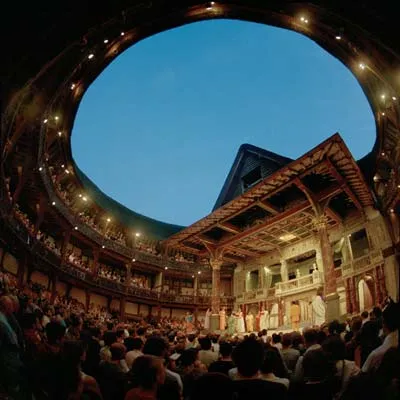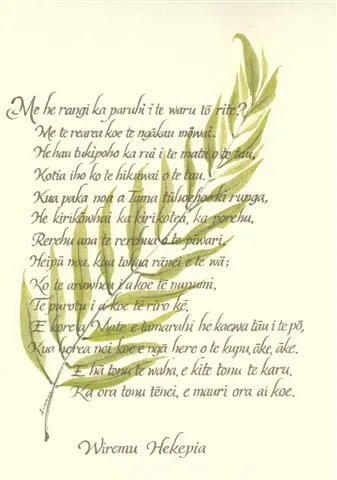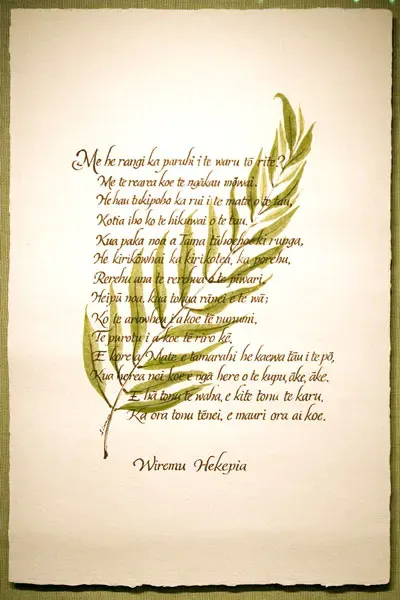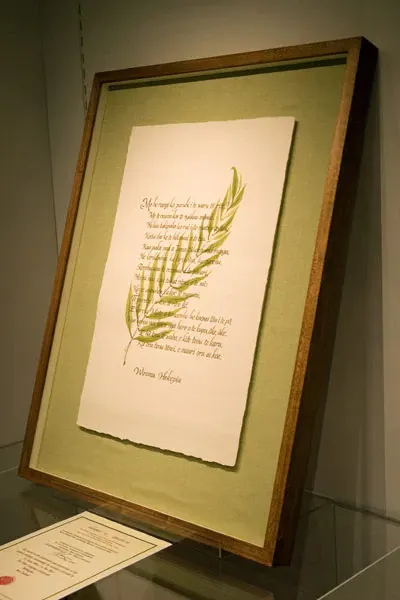Shakespeare's Globe receives te reo Maori Sonnet
Written by
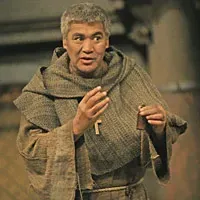
Shakespeare’s famous Sonnet 18 has been translated into te reo Maori and will be unveiled at Shakespeare’s Globe Theatre in London on August 19. Kiwi actor Rawiri Paratene, currently appearing at the Globe in Romeo and Juliet, will read the Sonnet in Te Reo.
The Sonnet, which starts with the line, ‘Shall I compare thee to a Summers day…’, will be unveiled by the Deputy High Commissioner for New Zealand, Belinda Brown. There will also be performances from London based Maori Club Ngati Ranana and young violinists from New Zealand, Ben and Rebecca Baker.
The gift comes from the Shakespeare Globe Centre New Zealand, and coincides with the 400th anniversary celebrations to mark the publication of Shakespeare’s Sonnets.
The translation has been scribed in calligraphy style, by Alphabetica manager Jill Larmer, on to soft flax paper and features a green fern frond in the background creating a rather unique art piece which stands as a collaboration of culture and language.
“It’s a very fitting way of honouring Shakespeare’s legacy and serves to remind us of the singular commonality that binds us all – that the language of love transcends all communication barriers,” says Huhana Rokx, Chief Executive of Te Taura Whiri i te Reo Maori (The Maori Language Commission).
Translator Te Haumihiata Mason agrees, saying that translating the sonnet into the Maori language required some research into the classical language of the Maori. Most of the sentiments of love are conveyed in universal ways and Shakespeare’s treatment of the language, his use of metaphors and similes to convey intensity of emotion, are similar to the way classical Maori language uses literary and metaphoric figures of speech.
“Our great Maori orators, just like Shakespeare, were masters at creating concise turns of phrases that were loaded with imagery and meaning and as such there are many historic love stories to reference relevant language from. So it was a pleasure to rediscover these stories again and find the most appropriate language to capture the same sentiment that Shakespeare conveys within the sonnet,” says Te Haumihiata Mason.
“Ultimately this collaborative effort not only celebrates Shakespeare in a culturally unique way but also showcases our own Maori language of love, reintroducing this classical narrative to a new generation of learners and speakers,” says Huhana Rokx.
The project began in 2008 when Dawn Sanders, the CEO of Shakespeare Globe Centre New Zealand (SGCNZ), visited the Globe in London. There she encountered a Korean translation of Shakespeare’s Sonnet 18 (Shall I compare thee to a summer’s day…), framed and hanging in the Globe Exhibition. It was then that Mrs Sanders had the idea of creating a Maori translation.
“It’s a beautiful work of art and will complement the stunning work of the embroiderers on New Zealand’s earlier gift to the Globe of four huge hangings,” says Mrs Sanders.
Peter Kyle, Chief Executive of Shakespeare’s Globe in London, said that "Shakespeare's Globe is delighted to receive this taonga as a token of our close relations with our colleagues and friends in New Zealand".
SONNET 18
Shall I compare thee to a summer's day?
Thou art more lovely and more temperate:
Rough winds do shake the darling buds of May,
And summer's lease hath all too short a date:
Sometime too hot the eye of heaven shines,
And often is his gold complexion dimm'd;
And every fair from fair sometime declines,
By chance or nature's changing course untrimm'd;
But thy eternal summer shall not fade
Nor lose possession of that fair thou owest;
Nor shall Death brag thou wander'st in his shade,
When in eternal lines to time thou growest:
So long as men can breathe or eyes can see,
So long lives this and this gives life to thee.
ORIORI 18
Me he rangi ka paruhi i te waru to rite?
Me te rearea koe te ngakau mowai.
He hau tukipoho ka rui i te mata o te tau,
Kotia iho ko te hikuwai o te tau.
Kua paka noa a Tama tuhoehoe ki runga,
He kirikowhai ka kirikotea, ka porehu,
Rerehu ana te rerehua o te piwari,
Heipu noa, kua tohua ranei e te wa;
Ko te arawheu i a koe te nunumi,
Te purotu i a koe te riro ke
E kore a Mate e tamarahi he kaewa tau i te po
Kua herea nei koe e nga here o te kupu, ake, ake.
E ha tonu te waha, e kite tonu te karu,
Ka ora tonu tenei, e mauri ora ai koe.
